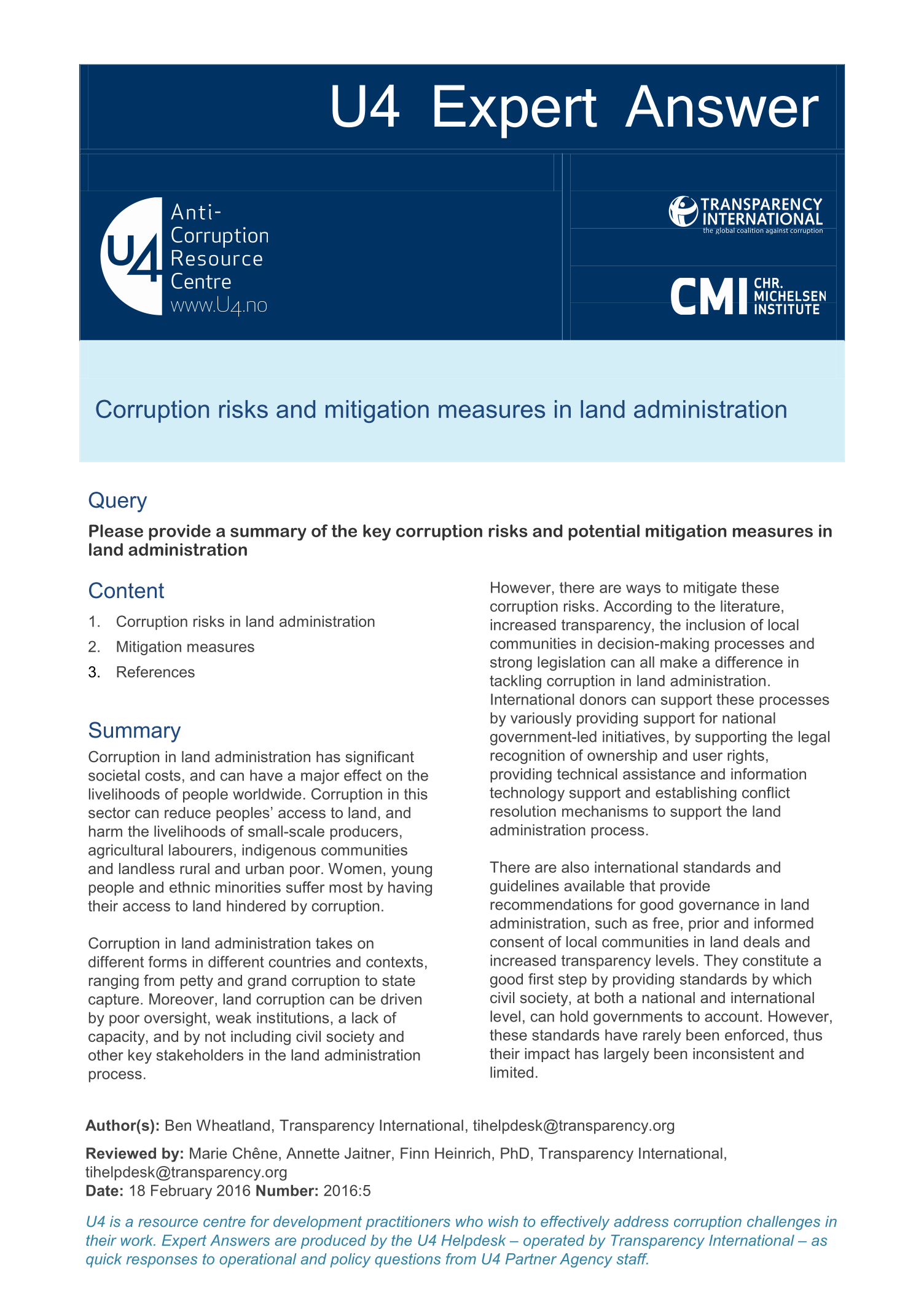U4 Helpdesk Answer
Corruption risks and mitigation measures in land administration
Corruption in land administration has significant societal costs, and can have a major effect on the livelihoods of people worldwide. Corruption in this sector can reduce peoples’ access to land, and harm the livelihoods of small-scale producers, agricultural labourers, indigenous communities and landless rural and urban poor. Women, young people and ethnic minorities suffer most by having their access to land hindered by corruption.
However, there are ways to mitigate these corruption risks. According to the literature, increased transparency, the inclusion of local communities in decision-making processes and strong legislation can all make a difference in tackling corruption in land administration. International donors can support these processes by variously providing support for national government-led initiatives, by supporting the legal recognition of ownership and user rights, providing technical assistance and information technology support and establishing conflict resolution mechanisms to support the land administration process.

Cite this publication
Wheatland, B. (2016) Corruption risks and mitigation measures in land administration. Expert Answer 2016:5
Disclaimer
All views in this text are the author(s)’, and may differ from the U4 partner agencies’ policies.
This work is licenced under a Creative Commons Attribution-NonCommercial-NoDerivatives 4.0 International licence (CC BY-NC-ND 4.0)


